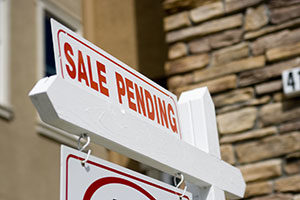 The economy has been booming for the past few quarters, with a strong stock market and high employment numbers. This has led to an increase in demand for homes. According to Lawrence Yun, chief economist for the National Association of Realtors, “Move-up buyers with considerable down payments and those with cash made up a bulk of the sales activity last month.” There is a greater supply of homes at the upper end of the market, which is good news for buyers looking to upgrade their current home. However, inventory woes continue for first-time buyers.
The economy has been booming for the past few quarters, with a strong stock market and high employment numbers. This has led to an increase in demand for homes. According to Lawrence Yun, chief economist for the National Association of Realtors, “Move-up buyers with considerable down payments and those with cash made up a bulk of the sales activity last month.” There is a greater supply of homes at the upper end of the market, which is good news for buyers looking to upgrade their current home. However, inventory woes continue for first-time buyers.
First-Time Buyers Priced Out of the Market
With fewer lower-priced homes on the market and home prices appreciating rapidly in many regions of the country, more and more first-time buyers are finding themselves priced out of the market. With mortgage rates anticipated to rise next year, home affordability could be severely impacted. According to Yun, “The increase in homebuilder optimism must translate to significantly more new construction in 2018 to help ease these acute inventory shortages.”
Who Is Buying?
With the shortage of lower-priced homes on the market, it comes as no surprise that first-time buyers accounted for only 29 percent of all sales in November, down from 32 percent posted both a month ago and a year ago. For all 2017, first-time buyers represented only 34 percent of home buyers. Twenty-two percent of all sales in November were cash, up from 20 percent a month ago and 21 percent a year ago, matching the highest market share since May. Most cash sales are made by individual investors and account for 14 percent of all transactions, up one percentage point from a month ago and unchanged from a year ago. “The elevated presence of investors paying in cash continues to add a layer of frustration to the supply and affordability headwinds aspiring first-time buyers are experiencing,” adds Yun. Demand from first-time buyers is only expected to rise in the coming year, with a healthy job market and rising wages. But these buyers will not be able to gain a toehold in the market unless there is an increase in the number of smaller, affordable homes available for sale.
Strong Sales
Existing-home sales climbed for the third month in a row. In November, sales reached 5.81 million, an increase of 5.6 percent from a month ago and 3.8 percent from a year ago. Sales haven’t been this strong in almost 11 years. According to NAR, the last time sales set a pace this rapid was back in December 2006, with 6.42 million existing homes sold. Every region—with the exception of the West—posted an increase in sales activity in November.
Regional Breakdown
Northeast – Existing-home sales annual rate of 800,000; an increase of 6.7 percent from October 2017 and unchanged from November 2016
Midwest – Existing-home sales annual rate of 1.42 million; an increase of 8.4 percent from October 2017 and 6.8 percent from November 2016
South – Existing-home sales annual rate of 2.34 million; an increase of 8.3 percent from October 2017 and 4 percent from November 2016
West – Existing-home sales annual rate of 1.25 million; a decrease of 2.3 percent from October 2017 and an increase of 2.5 percent from November 2016.
Photo: © ajcasanova – iStockPhoto
